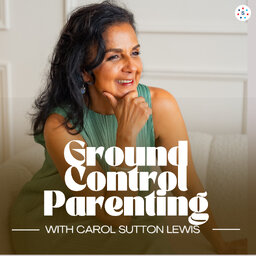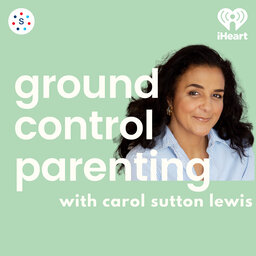A Family Affair with Laya DeLeon Hayes, Gina and Kevin Hayes
It’s a Hayes family affair! Carol invites actress Laya DeLeon Hayes, her father Kevin Hayes, and her mother Gina DeLeon Hayes to talk about how their family has nurtured and supported Laya’s acting career. At 18, Laya is a series regular on CBS’s The Equalizer, playing the daughter of Queen Latifah’s character Robyn McCall. Laya attributes much of her success to her parents’ unwavering support and encouragement. Gina and Kevin share with Carol the realities of raising a working child actor, and how they encouraged their daughter to confidently explore her passions from an early age. Laya delves into the complex dynamics of being biracial in Hollywood, how she connects with both sides of her family, and how her parents facilitate and participate in that journey. This episode is full of inspiring and heartfelt wisdom from the Hayes family, who are truly each other’s biggest fans.
Follow us at @GroundControlParenting and on www.groundcontrolparenting.com!
In 1 playlist(s)
Ground Control Parenting with Carol Sutton Lewis
Parenting advice and inspiration for raising smart, confident Black children. Join host and Ground C…Social links
Follow podcast
Recent clips

Season 4 Rewind with Carol Sutton Lewis
21:49

What Teachers Want Parents to Know with Dr. Charlene Reid
58:46

Raising Socially Conscious Kids with Deval Patrick
42:48
 Ground Control Parenting with Carol Sutton Lewis
Ground Control Parenting with Carol Sutton Lewis